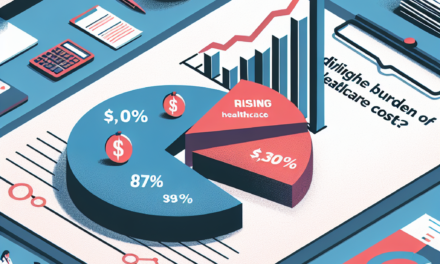FDA Implements Tougher Approval Criteria for COVID Vaccines
The COVID-19 pandemic has reshaped the landscape of public health, prompting unprecedented responses from governments and health organizations worldwide. One of the most significant developments has been the rapid development and deployment of vaccines aimed at curbing the spread of the virus. However, as the pandemic evolves, so too does the regulatory environment surrounding vaccine approval. The U.S. Food and Drug Administration (FDA) has recently announced tougher approval criteria for COVID vaccines, a move that has sparked discussions among healthcare professionals, policymakers, and the public. This article delves into the implications of these new criteria, exploring their rationale, potential impact on vaccine development, and the broader context of public health and safety.
Understanding the New Approval Criteria
The FDA’s decision to implement stricter approval criteria for COVID vaccines is rooted in a desire to ensure safety and efficacy as new variants of the virus emerge. The new guidelines require more comprehensive data on vaccine performance, particularly in diverse populations and against various strains of the virus.
- Increased Efficacy Standards: The FDA has raised the bar for what constitutes an effective vaccine. Previously, a vaccine could be authorized with an efficacy rate of around 50%. The new criteria demand a minimum efficacy rate of 70% against symptomatic COVID-19.
- Long-term Safety Data: The FDA now requires longer follow-up periods for clinical trial participants to monitor for any long-term side effects that may arise post-vaccination.
- Diverse Population Representation: The new guidelines emphasize the importance of including diverse populations in clinical trials to ensure that vaccines are effective across different demographics, including age, race, and underlying health conditions.
- Real-World Evidence: The FDA is placing greater emphasis on real-world data to supplement clinical trial findings, particularly regarding how vaccines perform in everyday settings.
- Variant-Specific Trials: As new variants of the virus continue to emerge, the FDA is requiring vaccine developers to conduct trials specifically targeting these variants to assess their effectiveness.
These criteria reflect a shift towards a more cautious and evidence-based approach to vaccine approval, prioritizing public health and safety in the face of ongoing challenges posed by COVID-19.
The Rationale Behind Stricter Approval Standards
The rationale for the FDA’s tougher approval criteria is multifaceted, driven by both scientific and public health considerations. As the pandemic has progressed, the emergence of new variants has raised concerns about the effectiveness of existing vaccines, necessitating a reevaluation of approval processes.
- Emergence of Variants: Variants such as Delta and Omicron have demonstrated the ability to partially evade immunity from previous infections and vaccinations. This has prompted the FDA to ensure that vaccines are robust enough to provide protection against these evolving strains.
- Public Trust: The rapid development and emergency use authorizations of COVID vaccines have led to skepticism among some segments of the population. By implementing stricter criteria, the FDA aims to bolster public confidence in vaccine safety and efficacy.
- Historical Precedents: Past vaccine rollouts have faced challenges, such as the 1976 swine flu vaccine, which was linked to an increase in Guillain-Barré syndrome. Learning from these historical precedents, the FDA is taking a more cautious approach to avoid repeating past mistakes.
- Global Health Considerations: The interconnectedness of global health means that vaccine efficacy is not just a national concern. Stricter approval criteria can help ensure that vaccines are effective worldwide, reducing the risk of new variants emerging.
- Regulatory Transparency: By establishing clear and rigorous standards, the FDA aims to enhance transparency in the vaccine approval process, allowing stakeholders to understand the basis for decisions and fostering a collaborative approach to public health.
These factors underscore the importance of a careful and methodical approach to vaccine approval, particularly in a rapidly changing pandemic landscape.
Impact on Vaccine Development and Innovation
The implementation of tougher approval criteria is likely to have significant implications for vaccine development and innovation. While the goal is to enhance safety and efficacy, there are concerns about how these new standards may affect the speed and agility of vaccine development.
- Increased Development Time: Stricter criteria may lead to longer timelines for vaccine development, as manufacturers will need to conduct more extensive trials and gather additional data before seeking approval.
- Resource Allocation: Vaccine developers may need to allocate more resources to meet the new requirements, potentially diverting funds and attention from other critical areas of research and development.
- Innovation in Vaccine Technology: The need for variant-specific trials may spur innovation in vaccine technology, leading to the development of more adaptable platforms that can quickly respond to emerging variants.
- Collaboration with Regulatory Bodies: Vaccine developers may need to engage more closely with the FDA and other regulatory bodies throughout the development process to ensure compliance with the new standards.
- Market Dynamics: The tougher approval criteria may impact market dynamics, as smaller companies may struggle to meet the new standards, potentially leading to consolidation in the vaccine industry.
While these changes may pose challenges, they also present opportunities for innovation and collaboration in the field of vaccine development.
Public Health Implications of Stricter Approval Criteria
The FDA’s decision to implement tougher approval criteria for COVID vaccines carries significant public health implications. As the pandemic continues to evolve, the effectiveness of vaccines remains a critical factor in controlling the spread of the virus and protecting vulnerable populations.
- Enhanced Protection for Vulnerable Populations: Stricter approval criteria can lead to vaccines that are more effective in protecting vulnerable populations, including the elderly and those with underlying health conditions.
- Reduction in Vaccine Hesitancy: By ensuring that vaccines meet high standards of safety and efficacy, the FDA can help reduce vaccine hesitancy and encourage more individuals to get vaccinated.
- Impact on Public Health Policy: The new criteria may influence public health policy decisions, including vaccination mandates and booster shot recommendations, as policymakers seek to ensure the highest level of protection for their communities.
- Global Health Equity: Stricter approval standards can contribute to global health equity by ensuring that vaccines are effective across diverse populations, reducing disparities in vaccine access and outcomes.
- Long-term Pandemic Preparedness: By establishing rigorous approval processes, the FDA is laying the groundwork for long-term pandemic preparedness, ensuring that future vaccines are developed with safety and efficacy as top priorities.
The public health implications of these changes are profound, as they have the potential to shape the trajectory of the pandemic and influence the future of vaccine development.
Case Studies and Examples of Vaccine Approval Processes
To better understand the implications of the FDA’s tougher approval criteria, it is helpful to examine case studies and examples from recent vaccine approval processes. These examples illustrate the complexities and challenges involved in bringing vaccines to market.
- Pfizer-BioNTech Vaccine: The Pfizer-BioNTech vaccine was one of the first COVID vaccines to receive emergency use authorization (EUA) from the FDA. Initially, it was authorized based on a 95% efficacy rate from clinical trials involving around 44,000 participants. However, as new variants emerged, the FDA required additional data on booster shots and long-term safety, leading to ongoing studies and updates to the vaccine’s authorization.
- Moderna Vaccine: Similar to Pfizer, the Moderna vaccine received EUA based on clinical trial data showing 94% efficacy. The FDA’s new criteria have prompted Moderna to conduct additional studies to assess the vaccine’s effectiveness against variants and its long-term safety profile, particularly in younger populations.
- AstraZeneca Vaccine: The AstraZeneca vaccine faced scrutiny during its approval process due to concerns about blood clotting events. The FDA’s rigorous evaluation of safety data led to a more cautious approach, delaying its authorization in the U.S. This case highlights the importance of thorough safety assessments in maintaining public trust.
- Johnson & Johnson Vaccine: The Johnson & Johnson vaccine was initially authorized based on a single-dose regimen with 66% efficacy. However, reports of rare blood clotting events led to a temporary pause in its use, prompting the FDA to reassess its safety profile. The new approval criteria may require Johnson & Johnson to conduct further studies to address these concerns.
- Global Vaccine Initiatives: The global response to COVID-19 has seen various countries implementing their own approval processes. For instance, the European Medicines Agency (EMA) has adopted similar rigorous standards, emphasizing the need for comprehensive data on safety and efficacy. This global perspective underscores the interconnectedness of vaccine development and public health.
These case studies illustrate the complexities of vaccine approval processes and the importance of adhering to rigorous standards to ensure public safety and trust.
Conclusion
The FDA’s implementation of tougher approval criteria for COVID vaccines marks a significant shift in the regulatory landscape surrounding vaccine development. By prioritizing safety, efficacy, and public trust, the FDA aims to navigate the challenges posed by emerging variants and evolving public health needs. While these new criteria may present challenges for vaccine developers, they also offer opportunities for innovation and collaboration in the pursuit of effective vaccines.
As the pandemic continues to unfold, the implications of these changes will be felt across the healthcare landscape, influencing public health policy, vaccine development, and global health equity. Ultimately, the FDA’s commitment to rigorous approval standards serves as a crucial safeguard for public health, ensuring that vaccines remain a vital tool in the fight against COVID-19.
In summary, the FDA’s tougher approval criteria reflect a careful and evidence-based approach to vaccine regulation, prioritizing safety and efficacy in a rapidly changing pandemic environment. As we move forward, it is essential for stakeholders to engage in open dialogue and collaboration to ensure that vaccines continue to protect individuals and communities worldwide.





